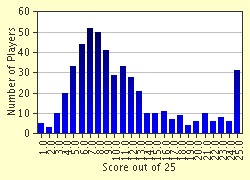Quiz Answer Key and Fun Facts
1. "Proudly the note of the trumpet is sounding/Loudly the war cries arise on the gale . . ."
2. "It was down by Brannigan's corner, one morning I did stray/I met a fellow rebel, and to me he did say . . ."
3. "The pale moon was rising above the green mountain/The sun was declining beneath the blue sea . . ."
4. "Come over the hills, my bonnie Irish lass/Come over the hills to your darling . . ."
5. "I am a young fellow that's easy and bold/In Castletown conners I'm very well known/And at Newcastle West I've spent many's the note/With Kitty and Judy and Mary . . ."
6. "Look out for hirelings, King George of England/Search every kingdom that breeds a slave/For Father Murphy, of the County Wexford/Sweeps o'er the land like a mighty wave."
These are not the opening lines of the song
7. "When you honor in song and in story/The names of the patriot men/Whose valor has covered with glory/Full many a mountain and glen . . ."
8. "An Ulster man I am proud to be/From Antrim town I come/All my life I have fished the stormy seas/Til I followed fife and drum . . ."
9. "Oh, see the fleet foot host of men/Who speed with faces wan/From farmstead and from fisher's cot/Along the banks of Bann . . ."
10. "In Dublin's fair city/Where the girls are so pretty . . ."
11. "Twas down the glen one Easter morn to a city fair rode I/There Ireland's lines of marching men in squadrons passed me by . . ."
12. "In the County Tyrone in the town of Dungannon/There was many's a ruction myself had a han' in . . ."
13. "Dear are her charms to me/Dearer her laughter free/Dearest her constancy . . ."
These are not the opening lines of the song.
14. "Twas on a dreary New Years' Eve, as shades of night fell down/A lorry load of volunteers approached the border town . . ."
15. "Come all you young rebels, and list while I sing/For the love of one's country is a terrible thing . . ."
16. "When winter was brawling, o'er high hills and mountains/And dark were the clouds o'er the deep rolling sea . . ."
17. "Come single belle and beau, and to me pay attention/Don't ever fall in love, 'tis the Devil's own invention . . ."
18. "When on Ramilles' bloody field/The baffled French were forced to yield/The victor Saxon backward reeled ..."
19. "When I was a maiden fair and young/On the pleasant banks of Lee/No bird that in the greenwood sung/Was half so blithe and free . . ."
20. "Maybe someday I'll go back again to Ireland/If only at the closing of my days . . ."
21. "In Mountjoy Jail, one Monday morning/High up on the gallows tree . . ."
22. "As I roved out one evening fair/All for to take the evening air/To my good luck I did espy/A jolly Quaker riding by . . ."
23. "Come all ye gallant poachers, who wander free of care/Who wander out on a moonlit night with your dog and gun and snare . . ."
24. "O Paddy dear, and did you hear the news that's goin' round/The shamrock is by law forbid to grow on Irish ground . . ."
25. "Oh, father dear I oft-times hear/You speak of Erin's Isle/Her lofty hills, her valleys green/Her mountains rude and wild . . ."
Source: Author
daver852
This quiz was reviewed by FunTrivia editor
bullymom before going online.
Any errors found in FunTrivia content are routinely corrected through our feedback system.

